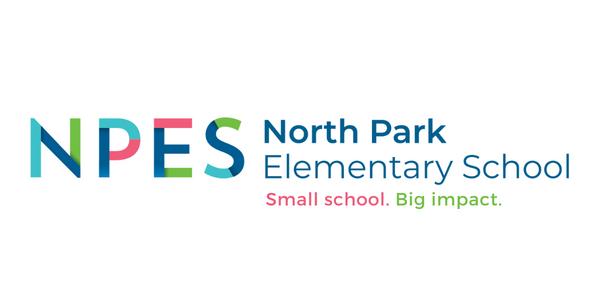

Currents
SPRING /SUMMER 2025
Inside
Shark Week: A Hands‐On Summer Experience in Creativity, Collaboration, and Critical Thinking
Deepening Student Engagement through Travel: How Student Travel Sparks Connection, Confidence, and Context
Value-Aligned Curriculum Updates: Enhancing Literacy and Math to Reflect Our Core Educational Values
Cross-Grade Buddy Program Expands Belonging
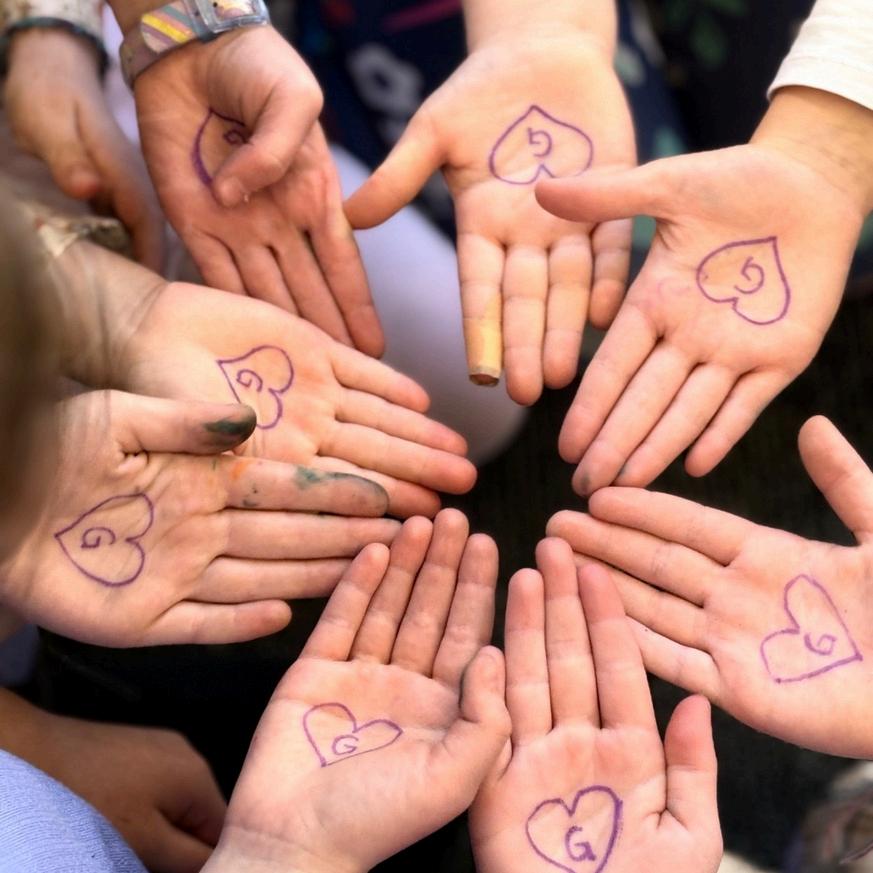
Welcome.....
to the Spring issue of Currents, a North Park Elementary School publication designed to inspire, inform, and spark conversation. Currents features articles written by NPES stakeholders and is a celebration of the creative, meaningful and diverse currents that flow through our community.
Cover photo and below: As part of our commitment to service and inclusion, our 1st graders visit GiGi’s Playhouse and create artwork to celebrate World Down Syndrome Awareness Day. Through letters, posters, and joyful collaboration, they share powerful messages of kindness, acceptance, and community
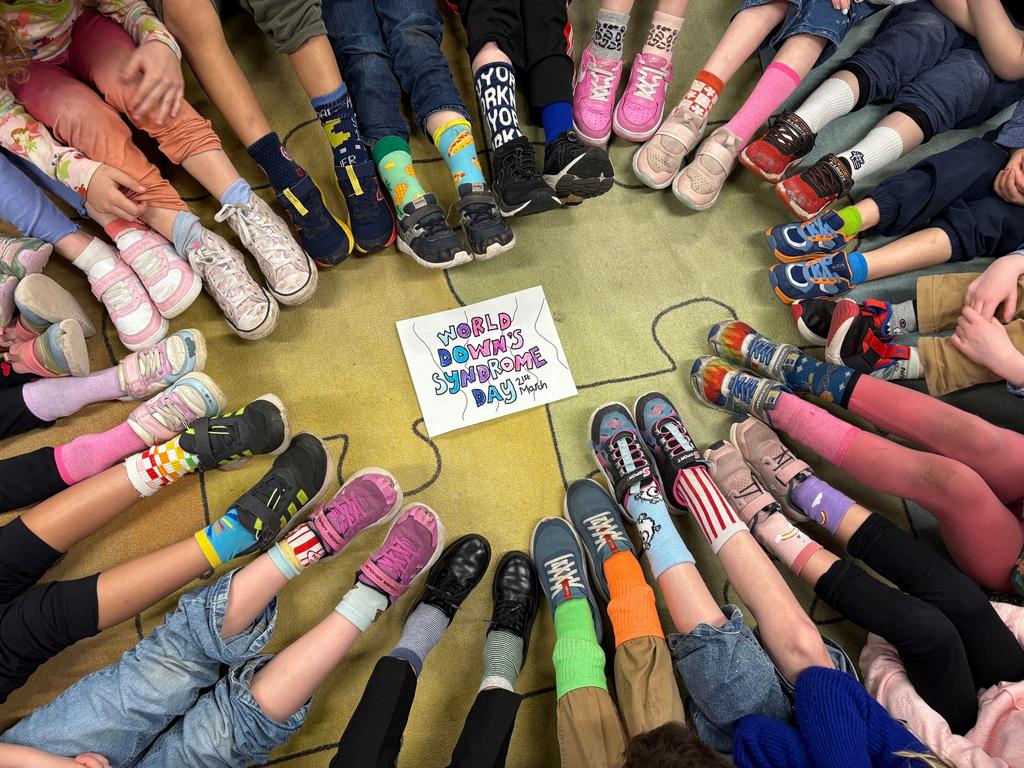
Shark Week
A Hands‑On Summer
Experience in Creativity, Collaboration, and Critical Thinking

By John Novick, Jr. Head of School
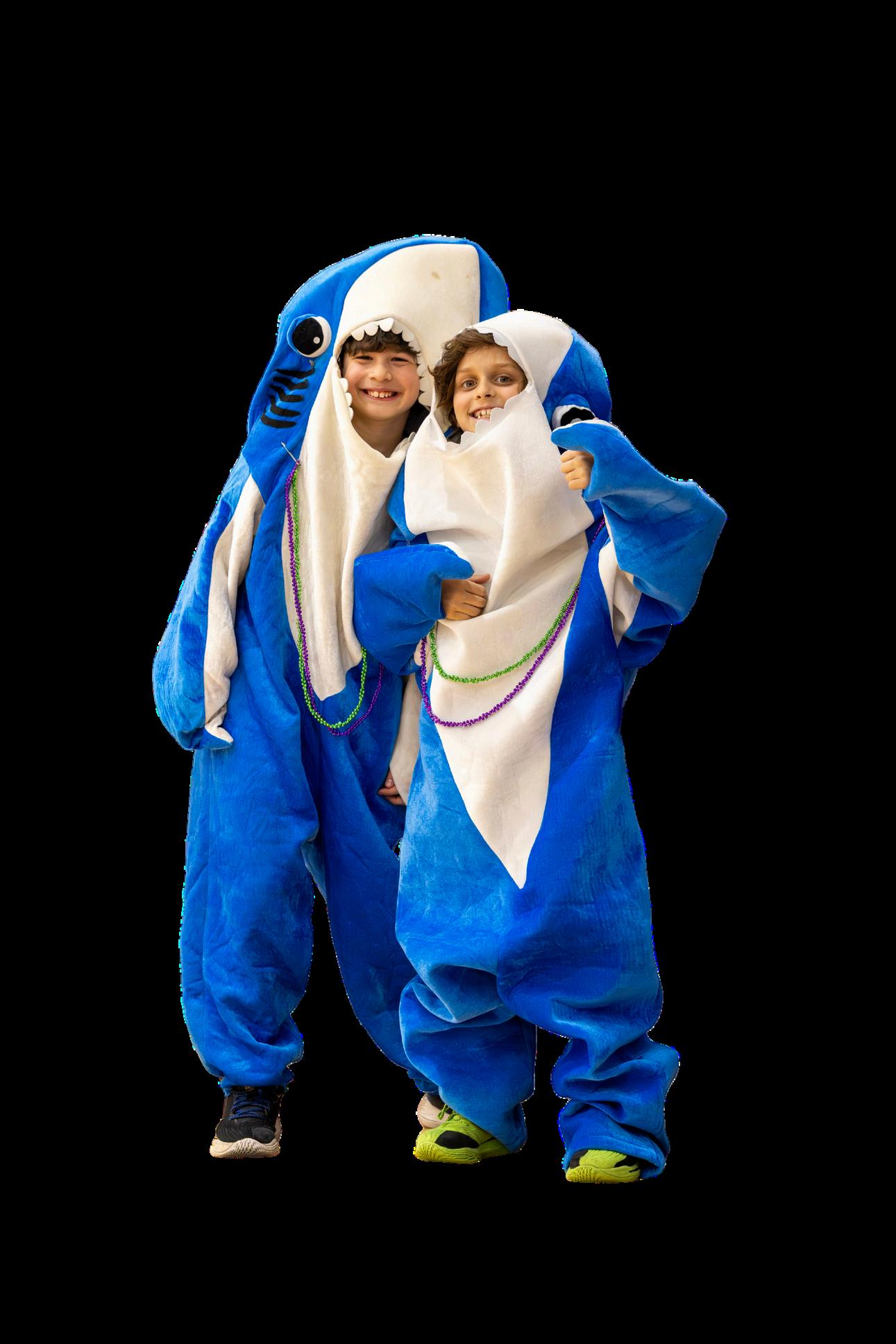
NPES Shark Week participants, grades JK - 8, worked together as museum staff to research, create, and share their ‘Museum of Change’ - proving that everyone contributes to big ideas and making!
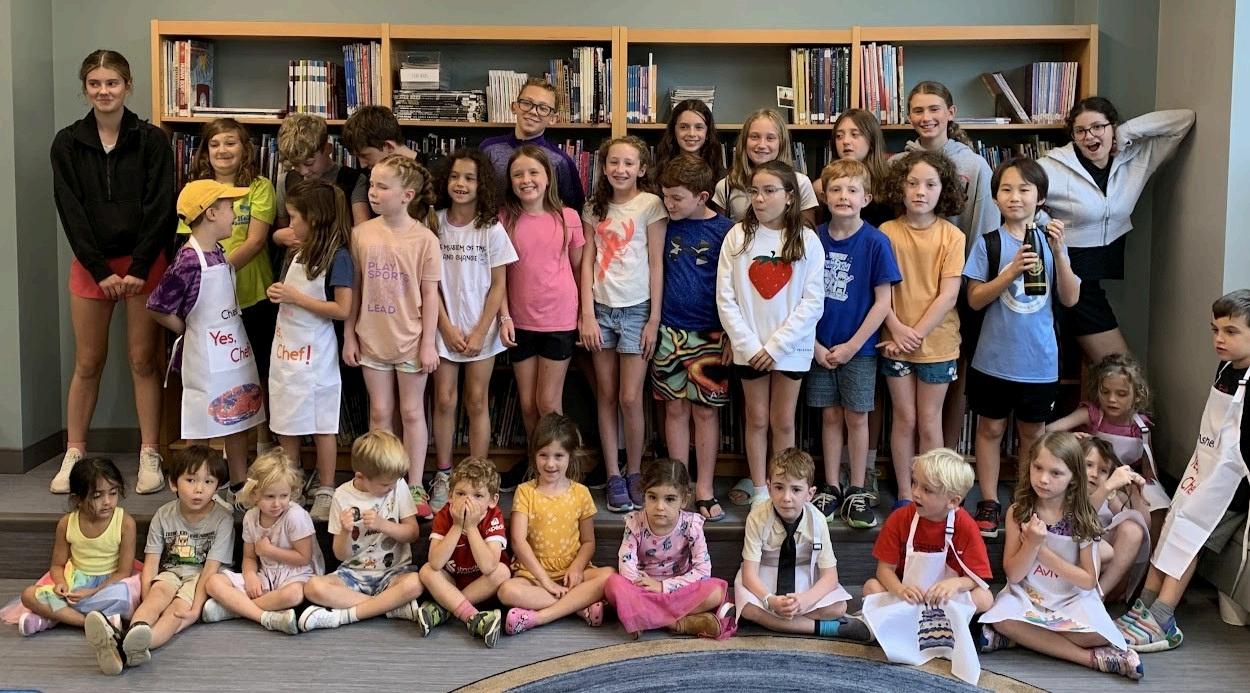
In the late winter of 2024 a team of NPES faculty and staff–including Creative
Drama Teacher Wendy Andrews, Director of Educational Technology Brad Riggs, Middle School Social Studies Teacher Mary Wells, Second Grade Teacher Sarah Woltmann (and me as Head of School lending support
where needed)--gathered in the school’s conference room to design a new one-week summer academic program with this vision in mind: let’s build an engaging, skills-rich, and fun student experience that encapsulates all we believe about teaching and learning, rooted in our core educational beliefs With
that in mind, over the course of a number of planning sessions running into the spring, Shark Week was born.
The purpose of Shark Week is to provide students with an opportunity to refresh and sharpen “student skills” prior to the start of a new school year, while reinforcing NPES’
SHARK WEEK GAVE EVERY NPES
STUDENT
FROM JUNIOR KINDERGARTEN TO EIGHTH GRADE THE CHANCE TO BECOME A MUSEUM CURATOR, ARTIST, ENTREPRENEUR, AND CHANGEMAKER.
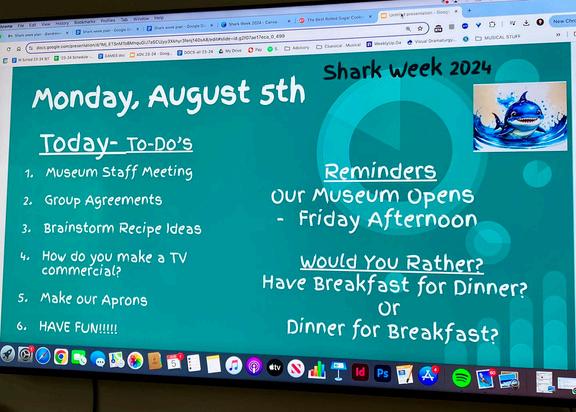
philosophy that learning should be relevant, challenging, collaborative, creative, and joyful–and when it is, students thrive. In its first year, thirty-two students with four teachers and two associate teachers collaborated to research, build, and operate a “Museum of Change,” featuring revolutionary thinkers and doers whose work changed their field or the world in a compelling and enduring way The students were grouped into museum departments and functioned like a museum staff throughout the week, beginning and ending each day with a whole-staff meeting in the library to share progress and challenges with other departments as the museum took shape With Ms Woltmann as facilitator, our junior kindergarten and kindergarten students
formed an art department, curating an exhibit featuring abstract and cubist art with stations in literacy and math that integrate skills related to geometric shapes, lines, and patterns. They also wrote about revolutionary artists Students designed and created their own unique art in the spirit of the artists researched and studied while strengthening skills for future academic success The skills targeted in this department includes math and literacy, communication, flexible thinking, independent problem-solving, collaboration, and compromise.
With Ms. Andrews as facilitator, our first and second graders served as the museum’s marketing and amenities department, promoting the museum,
developing signage, and creating a cafe, designing a menu, shopping for, and making the allergy-friendly treats themselves in the school’s kitchen. The skills targeted at this age were communications, literacy, measurement, collaboration, negotiation, organization, time-management, listening, patience, health/safety, and operating a business (including working within a budget, meeting deadlines, public relations, and customer service).
Mr. Riggs’ third through fifth graders planned, designed, and operated a museum gift shop, making all of the items sold in the shop themselves in our Innovation Lab and Art Room, employing design software, 3-D printing, laser cutting, and more digital and technological applications, as
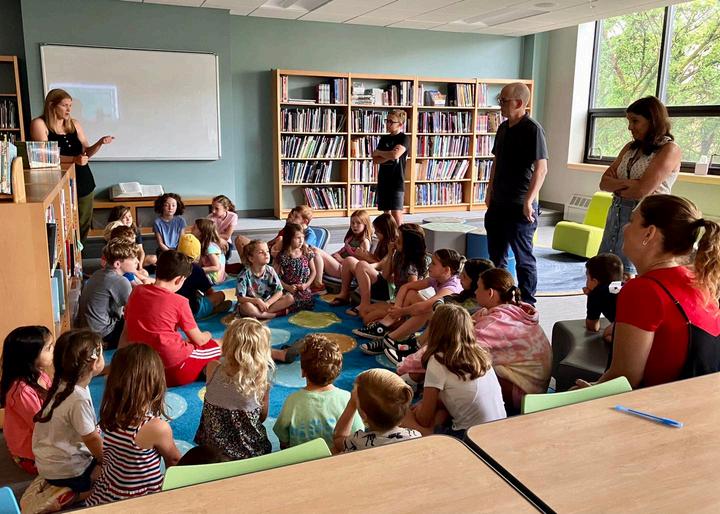
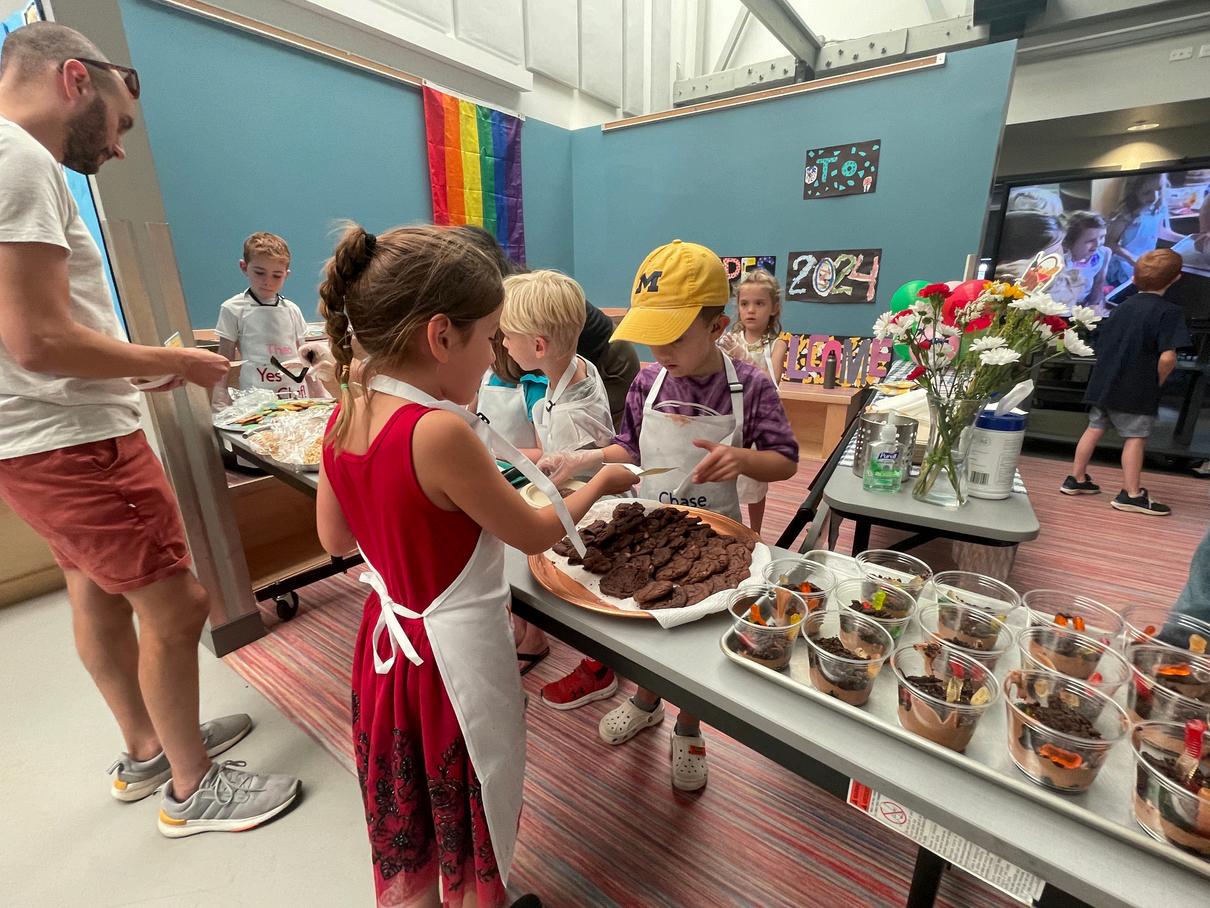
well as low-tech maker tools This department was also responsible for setting prices for the gifts celebrating revolutionaries and changemakers, promoting the shop within the museum, and maintaining accounting books on the business. For this age, skills targeted included iteration and application of the design thinking process; laser cutting; 3-D printing; using vinyl cutters and related software; entrepreneurship; curating a shop for an audience; advertising; collaborating; partnering with middle school exhibit designers; pricing and budgeting; communications; customer service; skill building; and executive functioning.
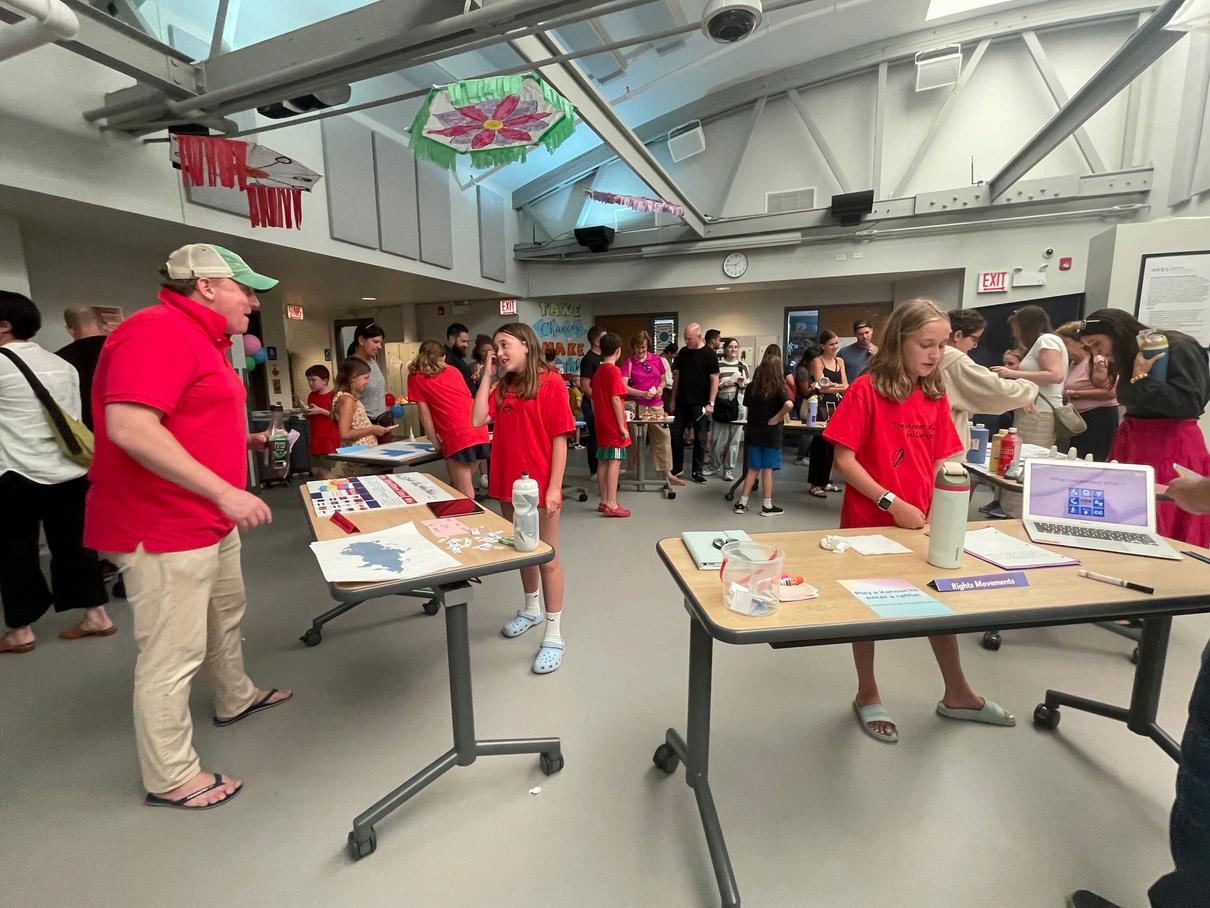
Shark Week campers share their projects - homemade treats made by the younger grades and interactive presentations given by our middle school leaders
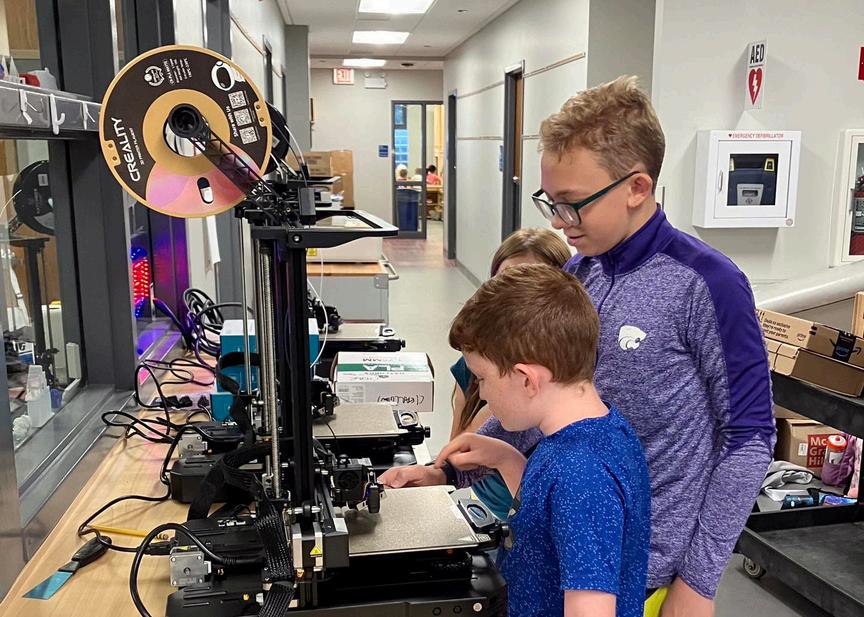
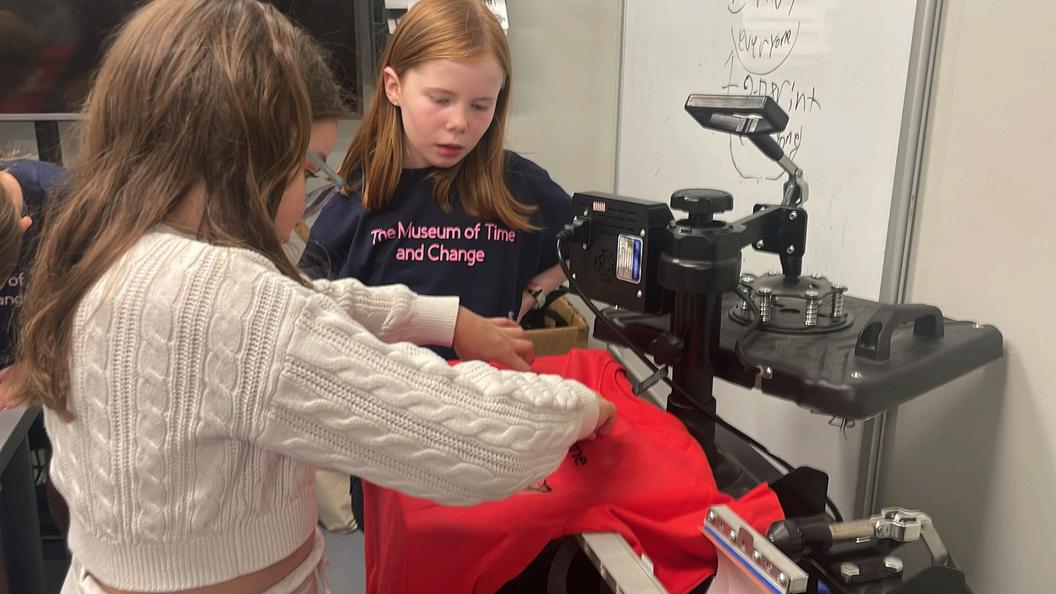
Finally, our middle schoolers, with Ms. Wells as department facilitator, envisioned, designed, and created interesting interactive museum exhibits about changemakers of their own choosing, inviting members of the school community and neighborhood to explore the museum to learn about change and why the lives and work of those featured matter. Among the skills practiced was research; writing; critical thinking and discussion (Socratic Seminar); tech design software and creation (Canva; imovie; 3-D printing, et al); collaboration; communication (listening for understanding); advertising; mentoring/supporting younger students; marketing to community members; and public speaking/presenting
Although each of these departments functioned independently for a portion of their six-hour days during Shark Week, they also worked interdependently, gaining invaluable experience developing a shared understanding and vision for a larger project with multiple parts; aligning their work purposefully with the work of others; monitoring progress and supporting one another as needed; coordinating communications, the allocation of resources, and timing; and synchronizing operations when the museum went live for guests on Friday afternoon Students ages five to fourteen accomplished
Gift‐shop designers use tech tools to bring changemakerthemed products to life
something during Shark Week individually, in small groups, and as a full museum staff that no individual or group could have ever accomplished on their own The sense of fulfillment, pride, and unbridled joy our students exhibited afterward (not to mention the quality of the museum itself) were powerful for our staff, families, and other museum guests to experience.
As we approach our second iteration of Shark Week (the first full week of August 2025), the structure, pedagogy, and schedule of this new summer program will remain in place, but what the students build together will change from year to year with a new skillsrich and timely theme Shark Week will remain an engaging, challenging, creative, collaborative,
and fun late summer educational experience for NPES students of all ages We are fortunate to have our own exceptional faculty and staff developing Shark Week, inspiring in students the same curiosity, inquiry, eagerness for challenge, empathy, critical thinking, and desire for collaboration that our school engenders at all grade levels during the school year. Shark Week is another reminder that if we’re doing education right, everyone’s included, everyone contributes, everyone grows, and everyone shares in the satisfaction and joy that results The NPES community understands that we are always stronger together
THE STUDENT‐CURATED “MUSEUM OF CHANGE” STANDS AS A TESTAMENT TO SHARK WEEK’S POWER TO SPARK CREATIVITY, COLLABORATION, AND CONFIDENCE IN EVERY LEARNER.
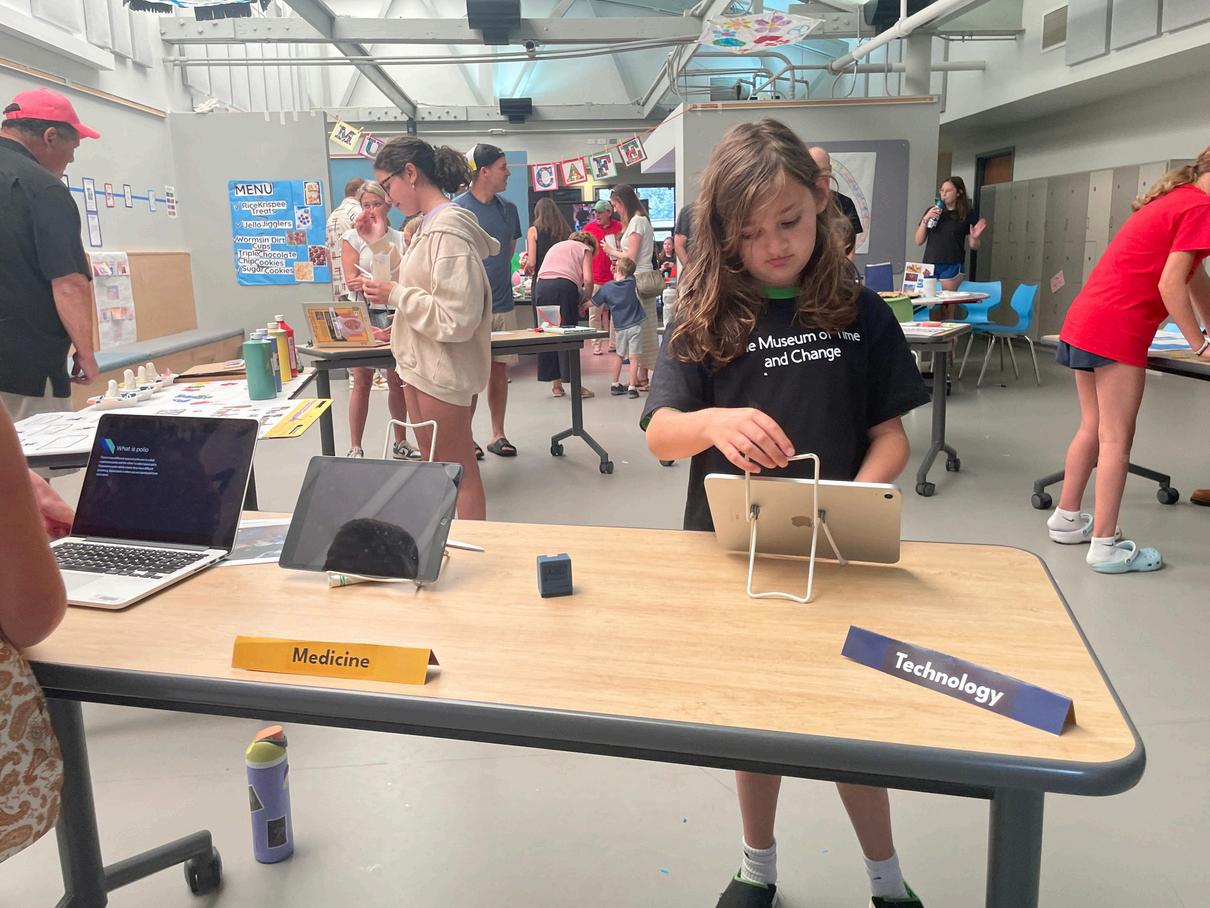
The NPES students stand in front of the Stone of Hope - the Martin Luther King, Jr. Memorial in Washington, D.C.
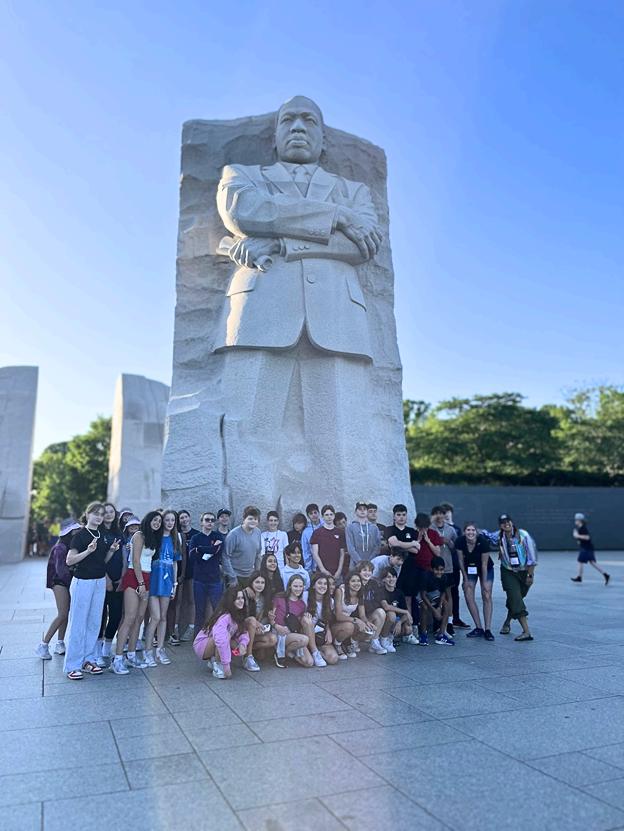
DEEPENING STUDENT ENGAGEMENT THROUGH TRAVEL
HOW STUDENT TRAVEL SPARKS CONNECTION, CONFIDENCE, AND CONTEXT
There are so many benefits to student travel. It is a time for students to bond with their teachers and with one another. It is a time where they get to practice independent skills like ordering in restaurants and perusing museums in small groups It also helps the social studies curriculum come alive with so many amazing connections
Middle School social studies at NPES is taught thematically rather than chronologically. This means that students explore United States history by connecting different time periods and branches of government through themes like equality, innovation, and checks & balances When students travel, they are seeing glimpses of topics that have been covered in the curriculum many times throughout 7th and 8th grade.
In 7th grade, students travel to Springfield as they learn about federalism, the state government and Abraham Lincoln just before their American Civil War unit They also travel to Washington DC to experience the government buildings that they have learned about through their United States government
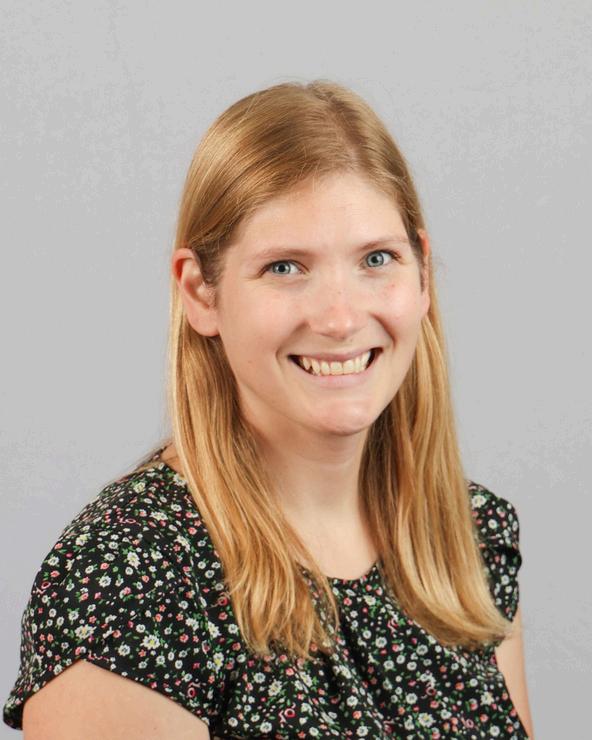
By Mary Wells Middle School Social Studies
Teacher & Middle School Team Leader
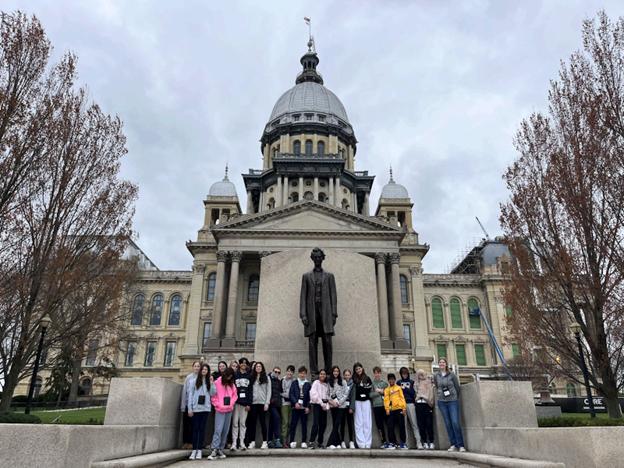
curriculum They also visit the monuments and memorials to the people and wars that are covered in both the 7th and 8th grade curriculum.
When students travel to Washington D.C., giving them context about the memorials they will visit helps make the trip more meaningful. Students research a memorial before they go and share what they learn with their classmates Then, on the trip, they take
photos and videos of their memorial, and when they return to school, they engage in a project of their choosing such as a model, video, or poster that discusses the idea of legacy. They explore the symbolism behind each memorial and decide if they believe that the memorial properly portrayed the legacy of the person, organization, or event
The 7th grade curriculum covers the United States
government and the Constitution through the lens of history When students learn about the legislative branch, they learn about major acts of legislation throughout history that both gave rights to African Americans and also took them away. When they learn about the Judicial Branch, they cover Supreme Court cases like Plessy v. Ferguson and Brown v Board of Education They also learn about the idea of federalism and about how the issue of slavery tore
While visiting Springfield, NPES students stand before the Illinois State Capitol and the statue of Abraham Lincoln – a fitting moment as they explore themes of leadership, federalism, and the enduring legacy of the Civil War
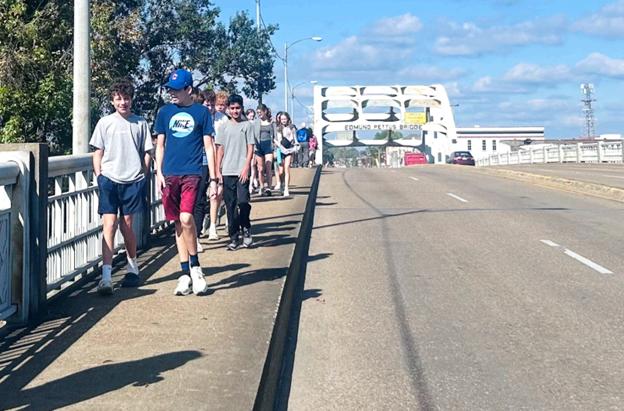
the country apart and how the United States sought to stitch itself back together during Reconstruction
In 8th grade, the social studies curriculum is taught thematically, and Black History is taught throughout the year Students spend the first two months of the year exploring the theme of equality through two units: Reconstruction and the Civil Rights Movement. While these two time periods happened 100 years from one another, they are linked in many ways By learning about them side by side, students really begin to understand how the Civil Rights Movement only happened
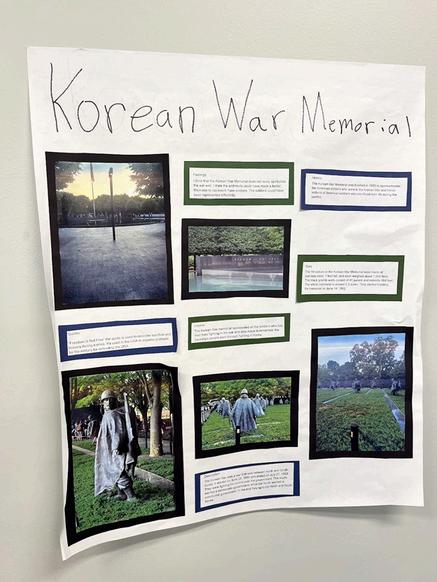
NPES students walk in the footsteps of history as they cross the Edmund Pettus Bridge in Selma – a powerful moment connecting classroom learning to the legacy of the Civil Rights Movement
Before their trip to Washington DC , students research memorials like the Korean War Memorial to deepen their understanding of legacy and symbolism in American history
SEEING HISTORY FIRSTHAND TRANSFORMS CLASSROOM LESSONS INTO
LASTING LIFE LESSONS.
because of the failures of Reconstruction right after the Civil War.
In both units, students become “experts” on different topics They research their topic and then use minilessons and menu projects to teach their classmates Through this approach, students make connections between their own topics and the ones that their classmates are covering.
By the time students travel to Georgia and Alabama in November, they have been exposed to the legacy of racism in the United States and have studied slavery, the Civil War, Jim Crow Laws, Segregation, the Great Migration, and the Civil Rights Movement When students visit the MLK center in Atlanta, walk across the Edmund Pettus Bridge in Selma, and
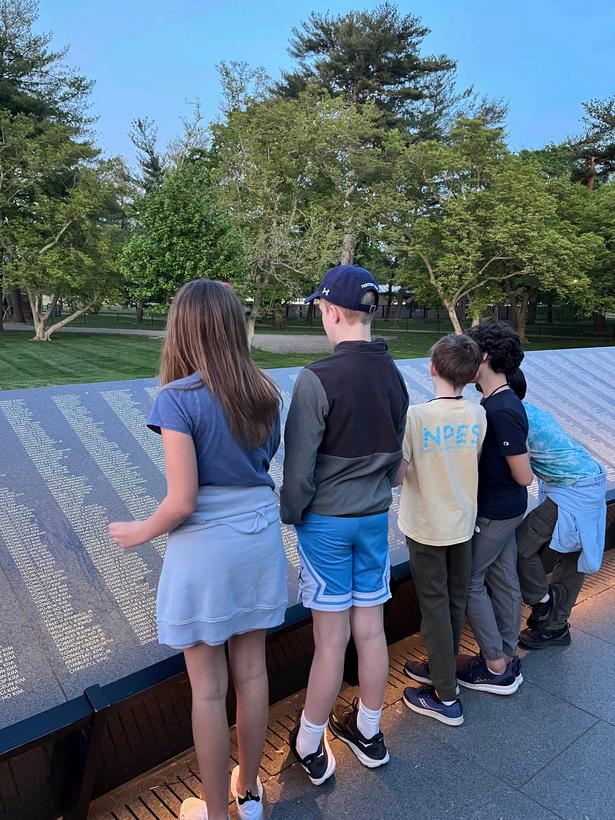
visit the 16th Street Baptist Church in Birmingham, they have more than just a passing knowledge of these topics. They have studied them and understand the historical context that helps explain each moment in time
In Atlanta, students travel to the Martin Luther King Jr Center and visit his childhood home, grave, and Ebenezer Baptist Church, where King, his father, and grandfather all were pastors. They also visit the Center for Civil and Human Rights, which includes a very powerful exhibit where students experience what it might have felt like to participate in a sit-in at a lunch counter.
In Selma, students experience the Sandra Bland Journey, a three-hour walking and bus tour led by a woman who was a child during the Selma to
Montgomery Marches. They hear a first-hand eye witness account of the Marches. The experience includes the church and housing projects where the marches were organized and viewing street art that commemorates the events, and a culminating walk across the Edmund Pettus Bridge, which is a powerful and emotional experience
In Montgomery, students visit the Rosa Parks Museum and the Legacy Museum. They also finish the day by walking up the steps to the state capitol, where the Selma marches ended with a speech by Martin Luther King, Jr.
Traveling with students to the South was deeply impactful Students grappled with really tough topics, and seeing these sites in person and learning about them from people who
Students pause at the Wall of Remembrance at the Korean War Veterans Memorial, reflecting on the lives lost and the powerful legacy of service, sacrifice, and remembrance
experienced them made them even more meaningful.
One of my favorite moments on the Civil Rights Trip was on the bus driving from Montgomery to Selma, Alabama Our tour director asked if anyone knew anything about the Selma to Montgomery Marches and all of the students called out the name of one of our students who not only researched this topic during our Civil Rights Movement Unit in 8th Grade but had also learned about it when she researched the Civil Rights Act and Voting Rights Act (when we learned about landmark acts of legislation during our Legislative Branch unit a year before in 7th grade) With encouragement from her classmates, this student came to the front of the bus, got on the loudspeaker, and told her
classmates all about Bloody Sunday, Turnaround Tuesday, and the final successful march to Montgomery.
Brian Stevenson’s Legacy museum was another highlight of the trip. The students learned about slavery, segregation, and racism throughout 7th and 8th grade, but this museum really helped bring that knowledge to life This powerful museum uses artwork, holograms, and videos to help students understand black history. After years of discussing these concepts in the classroom, students left this powerful experience with a lot to think about.
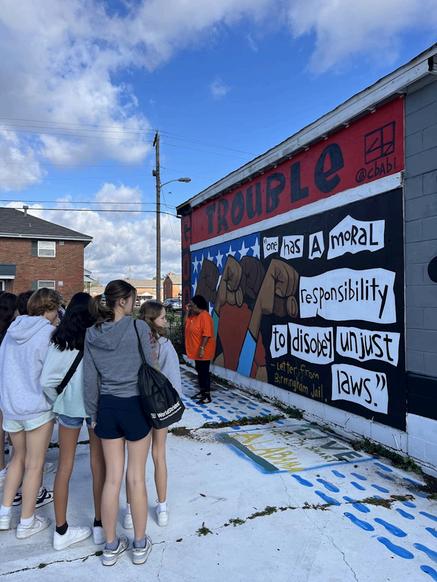
programming at NPES, it is not the only reason that we travel. On these trips, students also build important skills and independence, as well as have fun with their friends, creating memories that last a lifetime.
While curricular connections are one of the most important reasons that student travel is such an important part of our
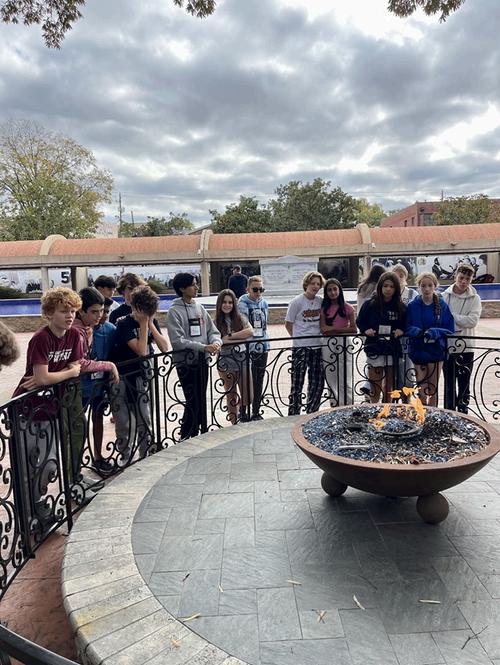
Gathered around the eternal flame at the Martin Luther King Jr. Center in Atlanta, students reflect on the life and legacy of Dr. King and the impact of his work on the fight for equality
Students take in a mural featuring Dr Martin Luther King Jr.’s powerful words: “One has a moral responsibility to disobey unjust laws.” Moments like this invite deep reflection on justice, activism, and the role young people can play in shaping a better future
STUDENT TESTIMONIALS CivilRightsTrip
It was really sad, and hard to experience, but I’m glad I did, because these stories need to be told.
I was surprised with the poverty and struggles I witnessed, especially in areas like Selma. I always imagined people who were protesting in more wealthy neighborhoods, like MLK’s museum. But, when we went to Selma it was really surprising to see that the community was struggling still, both financially and socially.
There were a lot more civil rights activists than just Rosa Parks, MLK, etc.
I thought it was cool to see all the things we learned about in real life, and talk to the people who were actually in these marches, like how our tour guide was actually in the March on Selma.
My biggest takeaway was how much bravery it took for the activists and leaders of the movement to make a change.
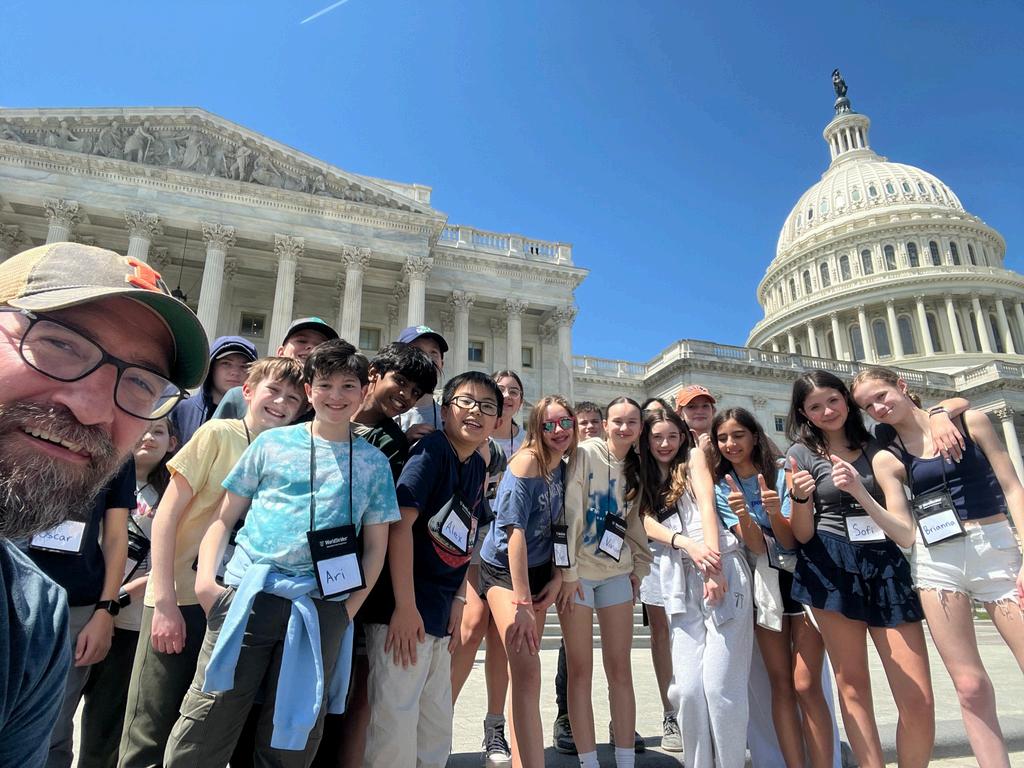
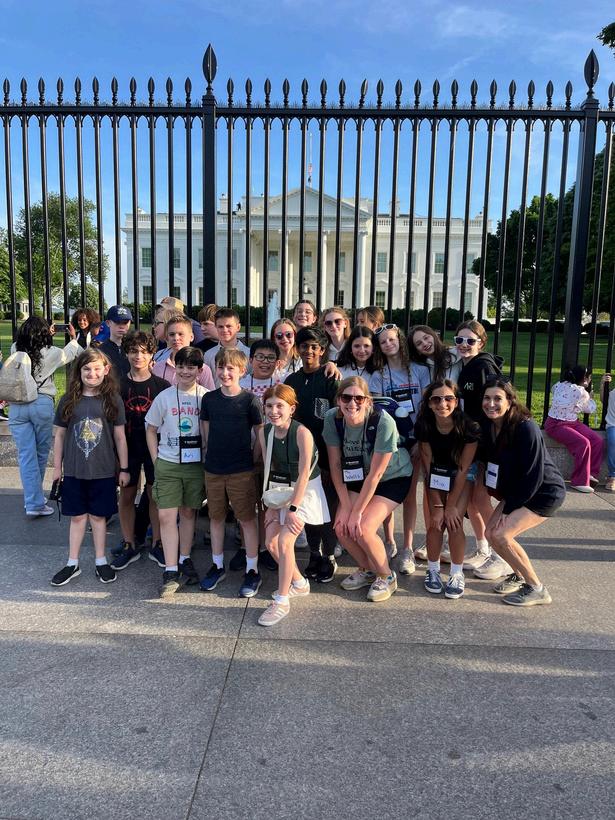
From the steps of the Washington Monument to the lawn of the
students explore the heart of American democracy These iconic stops bring classroom lessons to life, offering unforgettable moments of connection, reflection, and discovery.
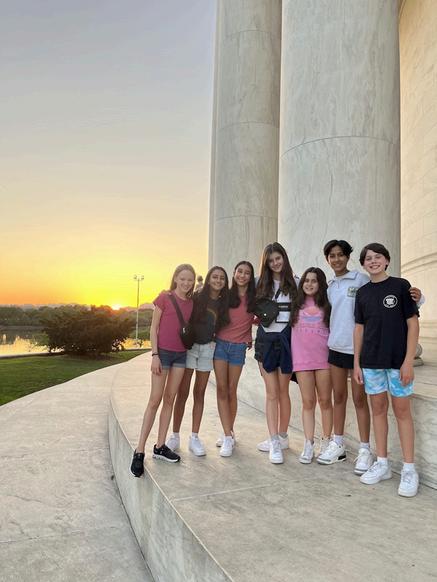
White House, NPES
VALUE ALIGNED CURRICULUM UPDATES
Enhancing Literacy and Math to Reflect Our Core Educational Values
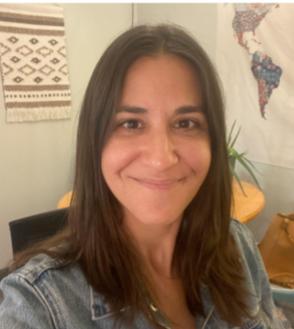
By Emily Friend Assistant Head of School
It might seem like curriculum changes that include K-5 literacy and middle school math wouldn’t have much in common, but both of these enhancements have goals rooted in our very intentional approach to pedagogy and our clear educational philosophy at North Park Elementary School
The Updates
The first change I want to highlight is the implementation of our new literacy curriculum across grades K-5 Collaborative Classroom’s Being a Reader and Being a Writer. The Collaborative Literacy curriculum, rooted in the
science of reading, focuses on developing independent readers through a mix of whole-class, small-group, and individual instruction The program is grounded in research-based practices, emphasizing phonics, vocabulary, fluency, and comprehension while promoting a love for reading. The most significant addition of this program, compared to our previous curriculum, is the differentiated smallgroup reading instruction approach in kindergarten through third grade. Literacy skills are continually assessed and students are placed in
specific targeted small groups that utilize rich and diverse text sets to teach identified skills, ensuring that students are working at their specific growth edge This further personalization of skill development in our school will serve NPES students well for many years to come, not at NPES alone, but also in their further studies.
The second notable change is in our middle school math program. Middle school is a period of time which is full of critical growth, both personal (social-emotional, identitydevelopment, and leadership)
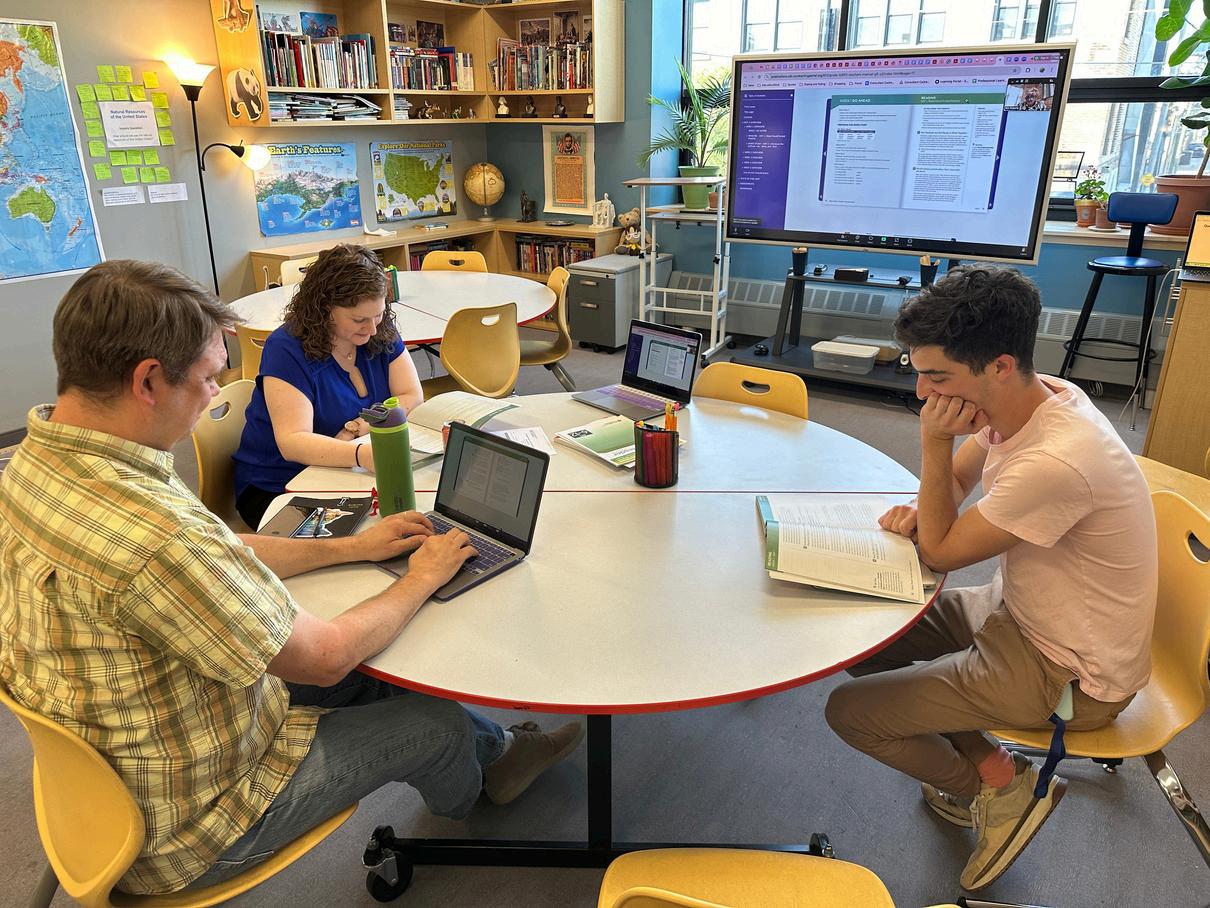
PERSONALIZED ACCELERATION MEANS EVERY STUDENT TACKLES ALGEBRA AT THE PACE THAT’S RIGHT FOR THEM - BUILDING CONFIDENCE THROUGH CHALLENGE AND SUPPORT.
and academic At North Park we lean into what makes middle school challenging, unique, and joyful We are enhancing and differentiating our sixth through eighthgrade experience in many ways as a result of our recent Strategic Plan. One key highlight is the offering of a differentiated math sequence for our 7th and 8th graders beginning with the 2025-2026 school year.
Sixth grade will be the last year of a survey-style math
course that all students participate in, consolidating skills and concepts studied previously and preparing students for high-level algebra to come In seventh and eighth grade math we are reducing class sizes (with an average student-teacher ratio of about 11:1 for seventh and eighth grade math), hiring a second math educator for these grades, and offering algebra (pre-algebra through high school-level algebra) at two distinct paces via different class options at each
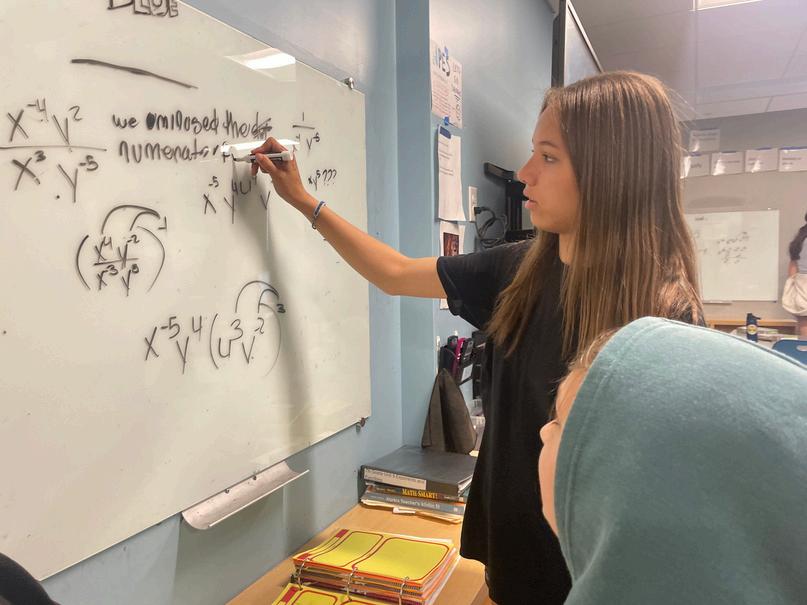
Collaborative math work encourages critical thinking, persistence, and a growth mindset
Ongoing professional learning and coaching equip our teachers to deliver research‐based literacy and math instruction according to best practices
At NPES, small groups and differentiated instruction allow students to deepen understanding, develop critical thinking skills, and grow as reflective learners
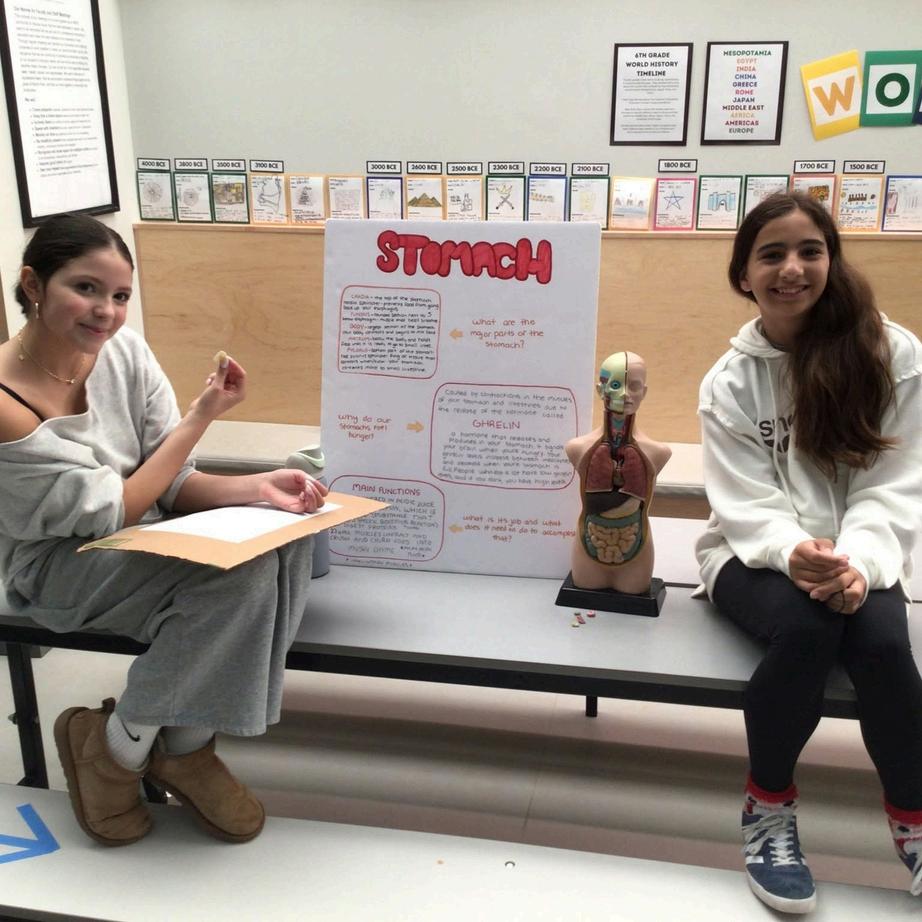
grade. With this new program during final preparation for high school, our students will continue to engage with the same accelerated core algebra curriculum we have today but do so in smaller groups and with a pace more aligned to their readiness, mindset, and current achievement level. This will help all students develop their potential as mathematicians, beginning with their own authentic starting point. This is why we’re calling NPES’ unique approach Personalized Acceleration.
With this new two-course approach our math placement team will share a placement recommendation
Targeted small‐group sessions help emerging readers build phonics and comprehension skills at their individual growth edges
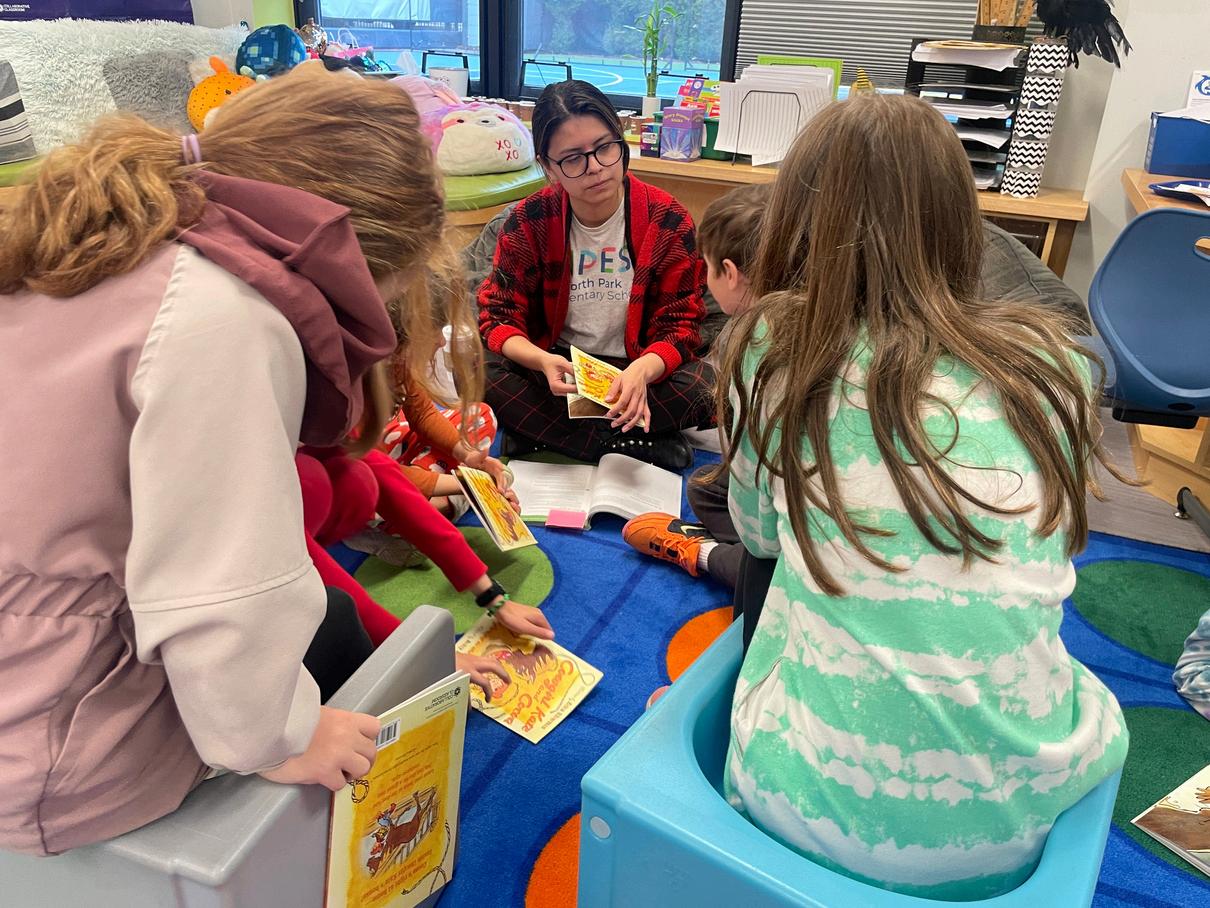
with the parents of all rising seventh and eighth-graders in June. The recommendations will be based on academic achievement levels in Fifth STEM and Sixth Grade Math (mastery but also mindset, confidence, engagement, and consistency); demonstrated ability to grasp new math concepts; demonstrated motivation and perseverance/grit in mathematics; self-advocacy skills and study habits; recent standardized test scores in math; and the aspirations of the student. As a fail-safe, in the rare event a student has been placed in a course not appropriate for them, we have the ability to move a student to the other course following consultation with teachers, advisors, the student and parents, before October 1st Placement decisions are for one-year only, and reviewed annually
The equity in this more personalized program lies in the fact that all are studying high-level algebra, all have the option of overriding the recommendation, and the placement criteria take into account more than current achievement level in the subject
This significant enhancement to the student experience will address diverse learning needs, empower students, and create an even better student- teacher ratio in our mathematics classrooms at a pivotal time of learning prior to high school.
How These Changes Connect to Our Values
Both the literacy and math curricular changes reflect our dedication and commitment to making decisions based on research and current best practices in teaching and
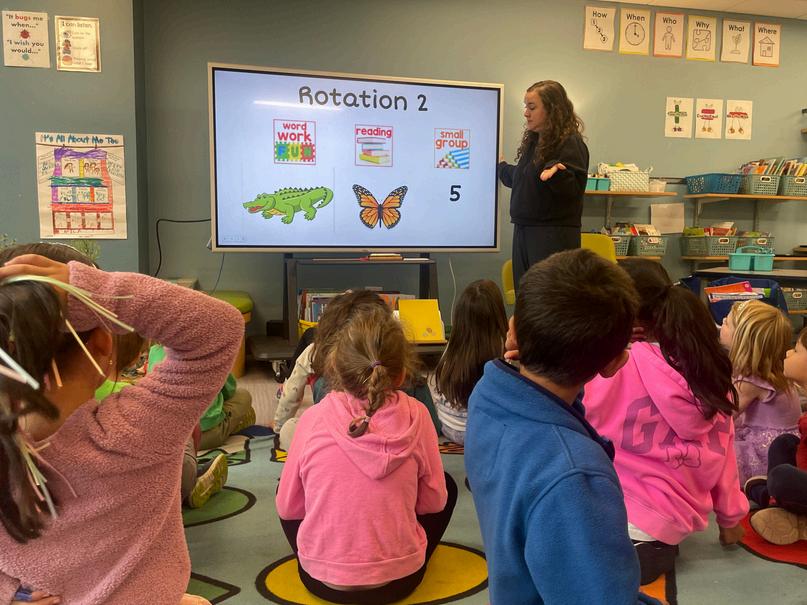
learning. While the Science of Reading informs the literacy changes, the need for pacing in math that feels empowering and challenging, while also ensuring support and the building of confidence where needed, aligns with how students learn best and clearly reflects a key element of the NPES mission: “affirming, challenging, and supporting each child as they achieve their full potential as reflective learners”
Recognizing
that all students grow and learn at their own pace is fundamental to a small school like ours. We know that one size fits all does not work in education and are fortunate enough to have the student-teacher ratio to support differentiated instruction that allows students to progress along their personal growth trajectory Both of these
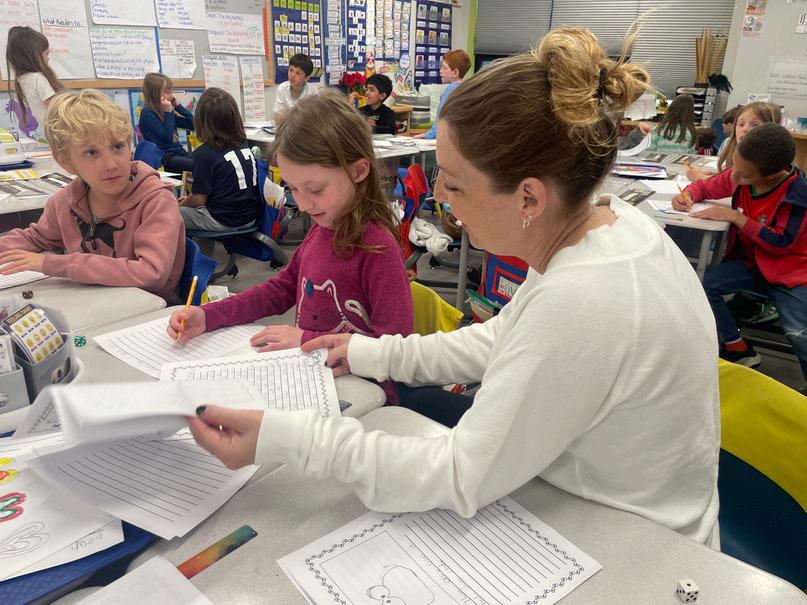
Word study and vocabulary development lay the groundwork for comprehension and lifelong literacy.
Teachers meet with students in small groups to build writing habits and encourage confident communication.
curriculum updates further deepen these practices and will directly impact student growth.
Relationships are at the heart of what we do and nothing impacts a student’s ability to learn more than how they feel in the classroom The small group literacy instruction and differentiated math course offerings place students in environments that feel affirming and appropriate, allowing them to take educational risks in a safe and supportive space. Intellectual risk taking leads to incredible student growth.
Small School, Big Impact
Whenever a curriculum update/enhancement takes place we support teachers throughout the process by providing formal professional development, 1:1 coaching, consultations with experts,
and ongoing team meetings to reflect and evaluate the successes and challenges with implementation. Additionally, we gather data around the efficacy of the program, including standardized test classroom trends, teacher observations, and individual student growth reports This high degree of intentionality, along with NPES’ truly exceptional faculty and staff and our unique independent school commitment to continually strengthening our already-exceptional program, is one way in which North Park Elementary School is able to broker its intimate, human scale into a more authentic and meaningful educational experience. Small school, big impact for all.
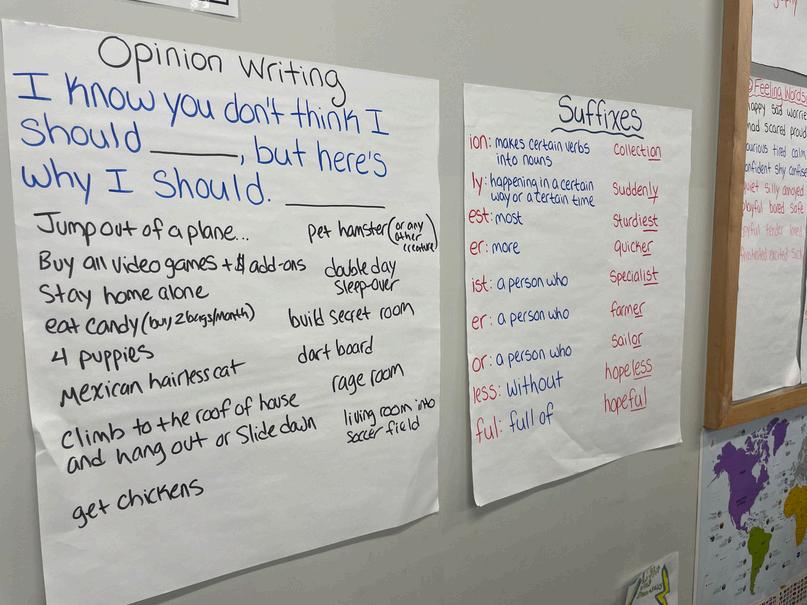
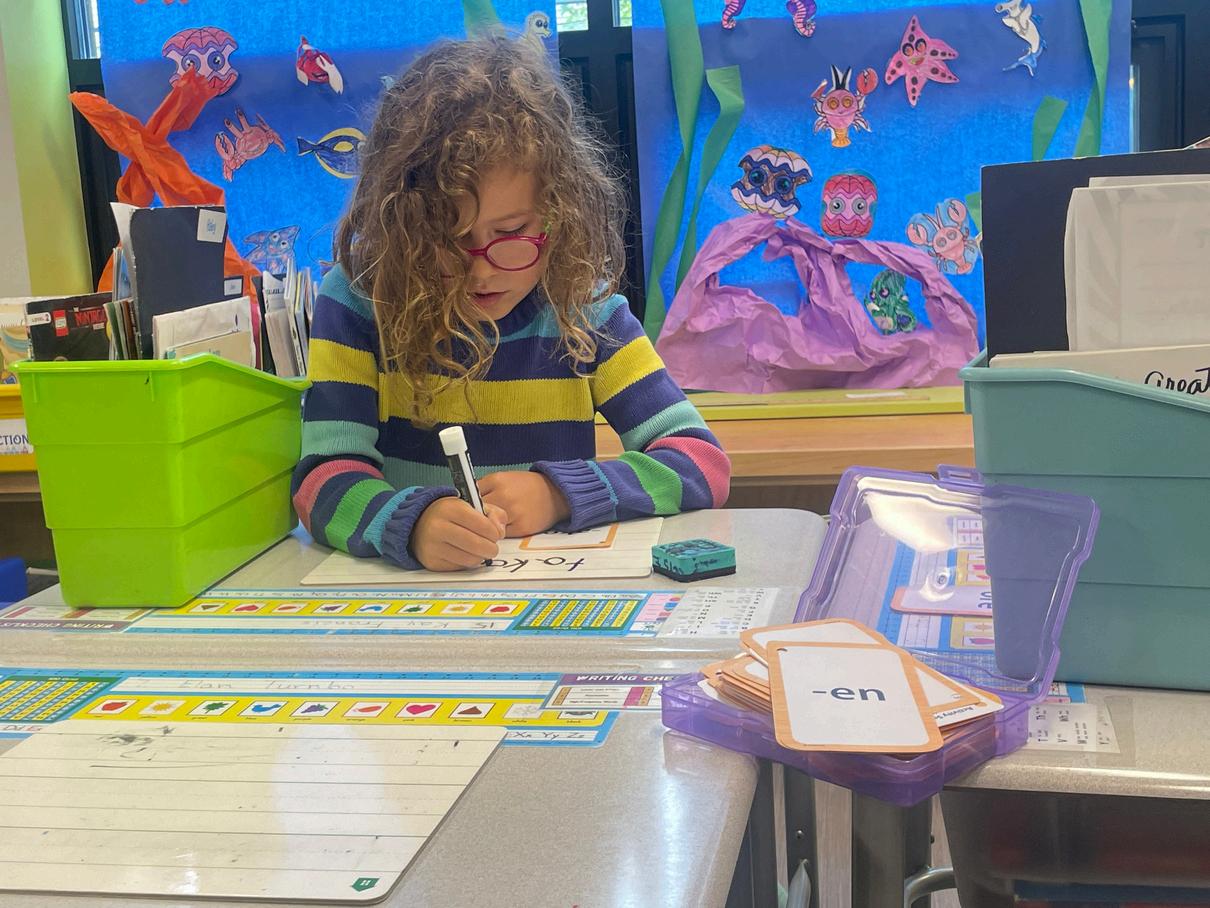
Opinion writing and suffix charts reinforce essential literacy skills through clear, student-friendly examples
Independent writing time empowers students to apply new skills and grow as confident communicators
CROSS-GRADE BUDDY PROGRAM EXPANDS BELONGING
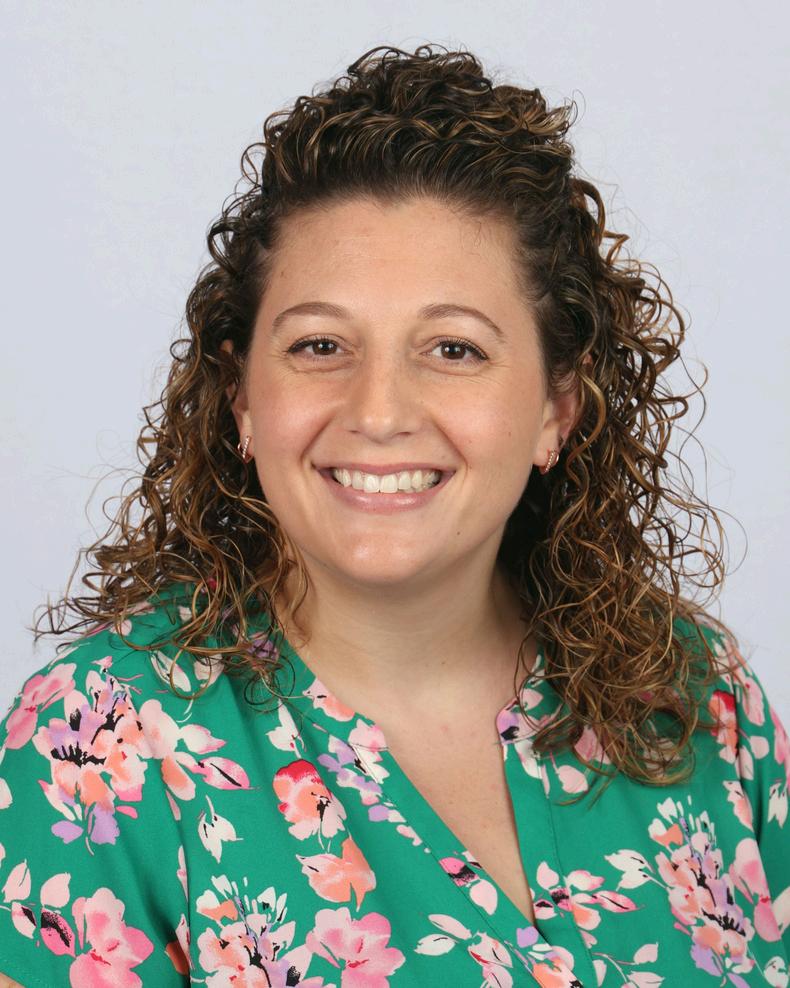
By Kat Gates
School
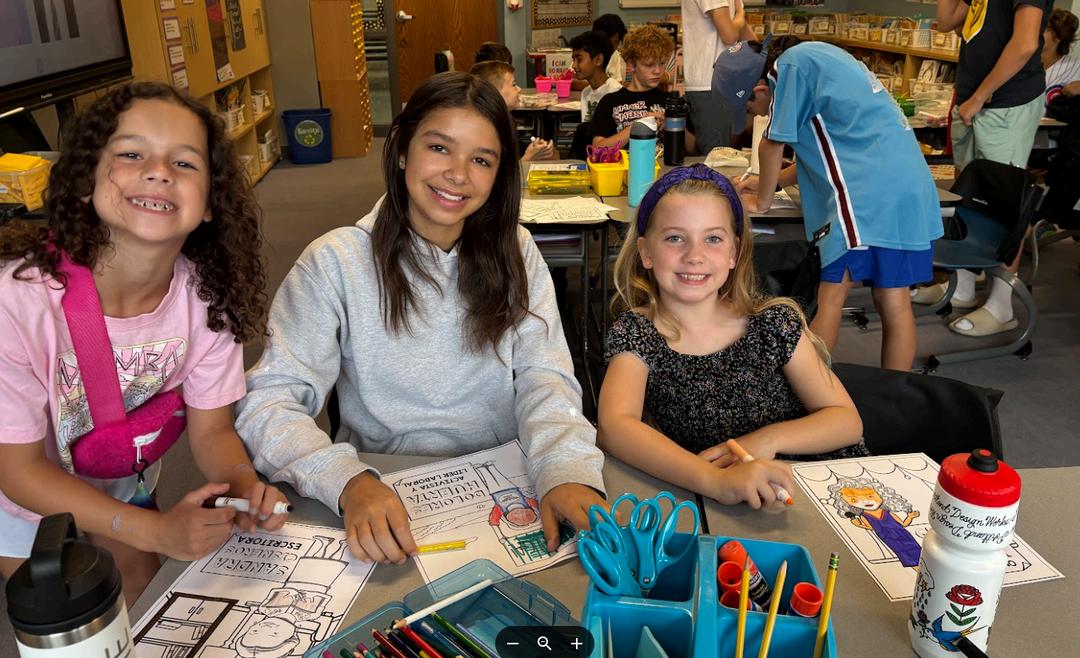
Cross‐grade buddies bring Hispanic Cultures to life as they color portraits of inspirational Latinx leaders together.
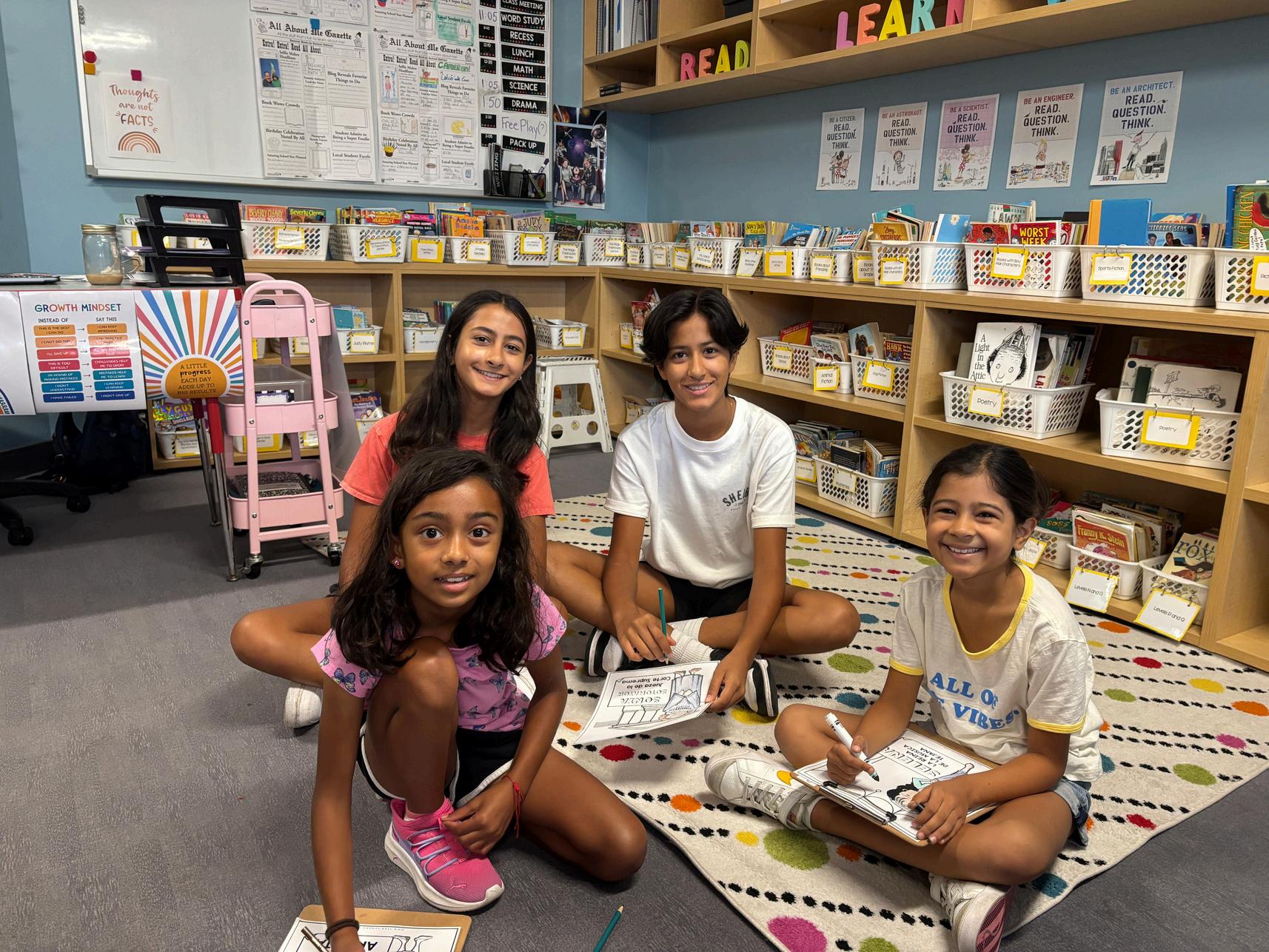
distinctive place to learn With after-school clubs, a diverse range of sports teams, a lively all-school musical, and an enriching Science Olympiad program, the school is always buzzing with curious, engaged, and inspired students
One unique program NPES is proud to incorporate into our curriculum is our cross-grade Buddy Program. In this program, older students are paired with younger students and spend time together learning, playing, and collaborating While it might seem like a simple concept, the impact extends far beyond the benefits of interaction between students of different ages This program plays an important role in enhancing the overall educational experience and
Each September, students are excited to reunite with their buddies and further grow their friendships Throughout the duration of the school year, collaborating classrooms come together to participate in a range of activities These gatherings often relate to current events, cultural celebrations, or the values that NPES strives to nurture within its student community. These moments of conversation and play help develop a sense of connection and pride within the school community that goes well beyond the academic setting
In February, students honored some of the incredible contributions Black individuals have made throughout history including learning about Trombone
youngest inaugural poet in US history, who inspires many through her powerful words about social justice, equity and inclusion
This spring, buddy classrooms had the opportunity to celebrate Earth Day as they learned about the many ways we can help preserve and protect our environment. Buddies spent time in nature and promoting sustainability in our community by working cooperatively to raise awareness and advocate for environmental justice and conservation
Cross-grade buddy programs are a powerful tool for fostering a sense of community, leadership, and emotional development within an elementary school. By connecting students
The NPES Buddy Program helps students feel seen, valued, and connected.
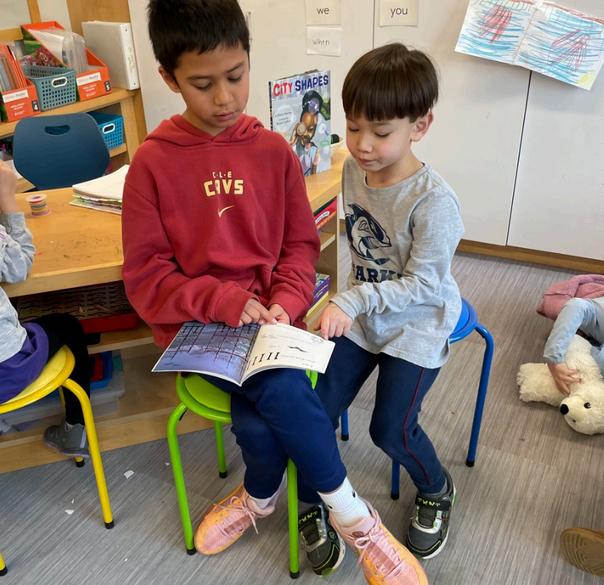
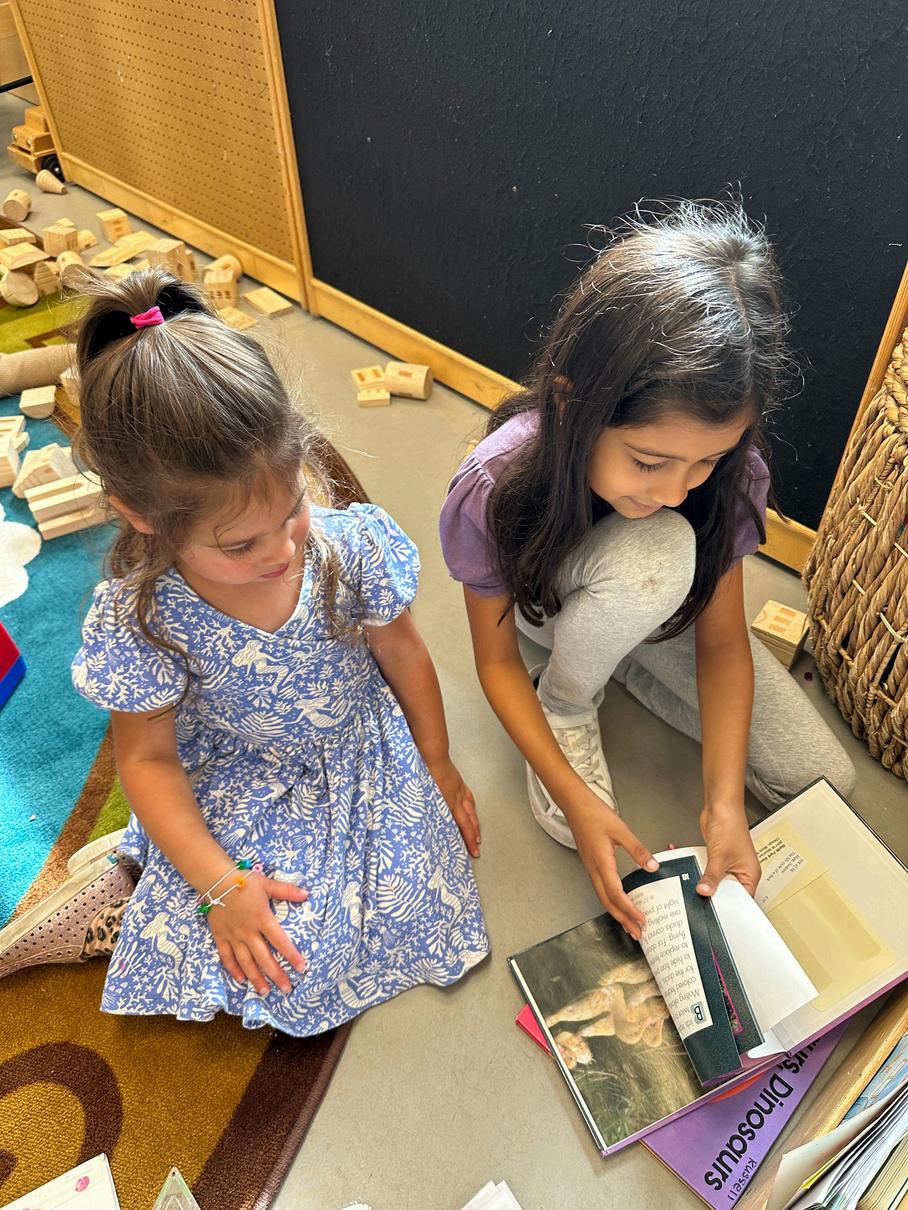
throughout the school we are able to provide a platform where students can practice compassion, build empathy, increase academic engagement, and create lasting friendships all of which contribute to a positive and inclusive school environment. The North Park Buddy Program not only enriches the individual students involved, but also strengthens our entire school community.
Big buddies foster a love of reading by sharing favorite books with their younger partners
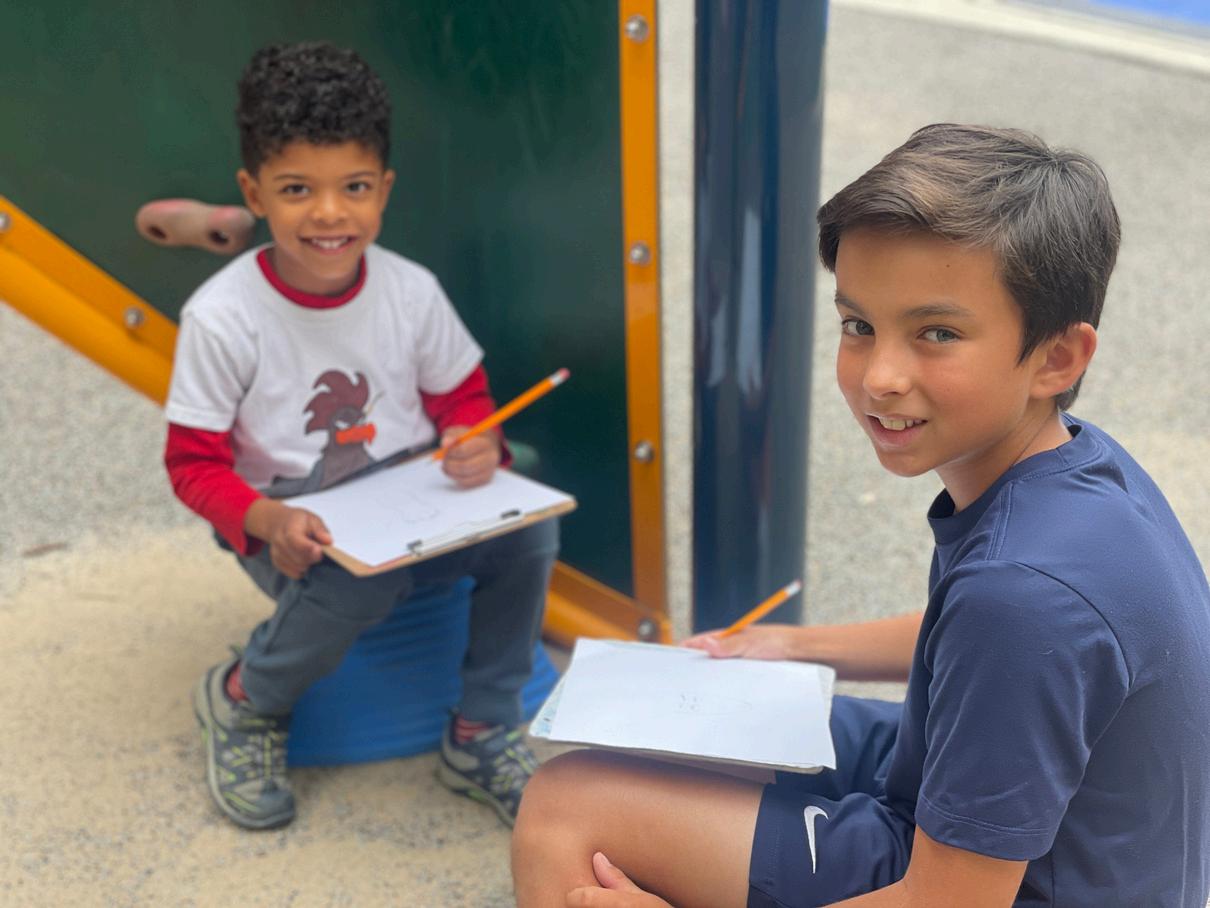
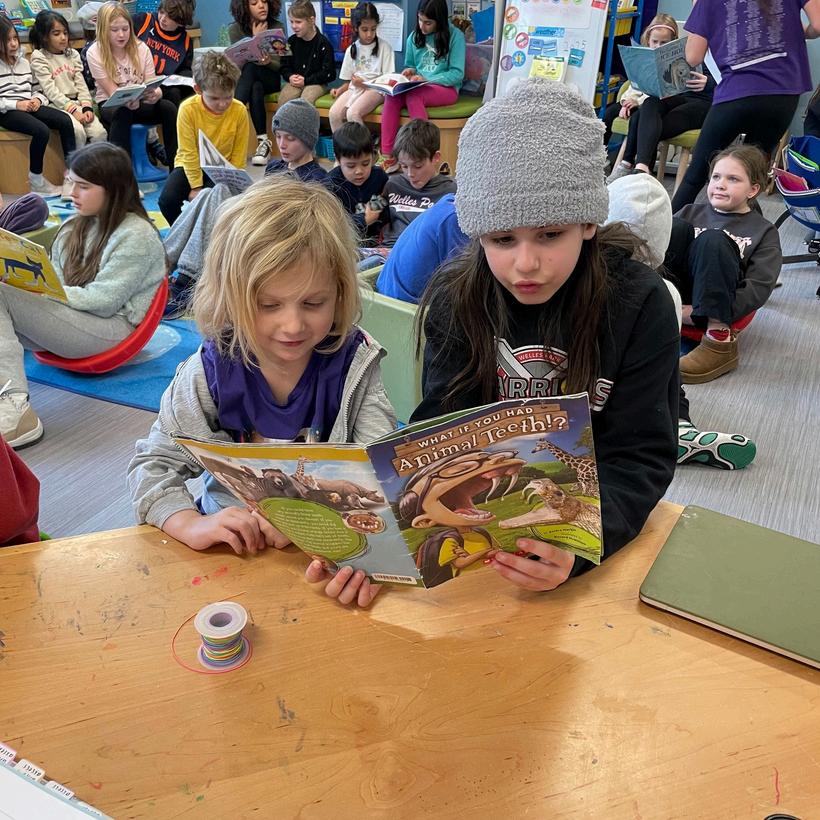
Buddies learn from each other, inspire each other, and make NPES a welcoming place to learn
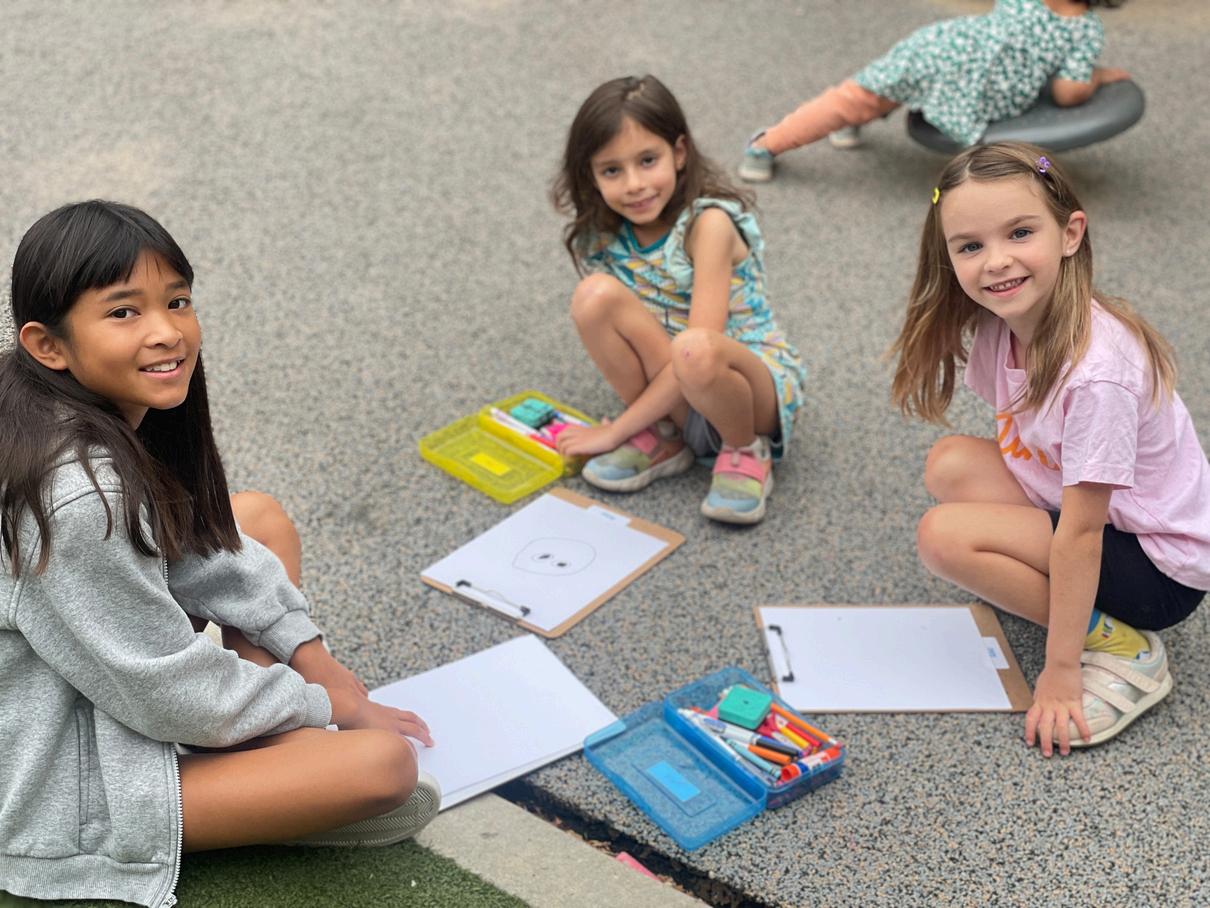
Thank You to Our Community Partners
We are deeply grateful to our community partners whose generosity and support help strengthen the NPES experience for every student.
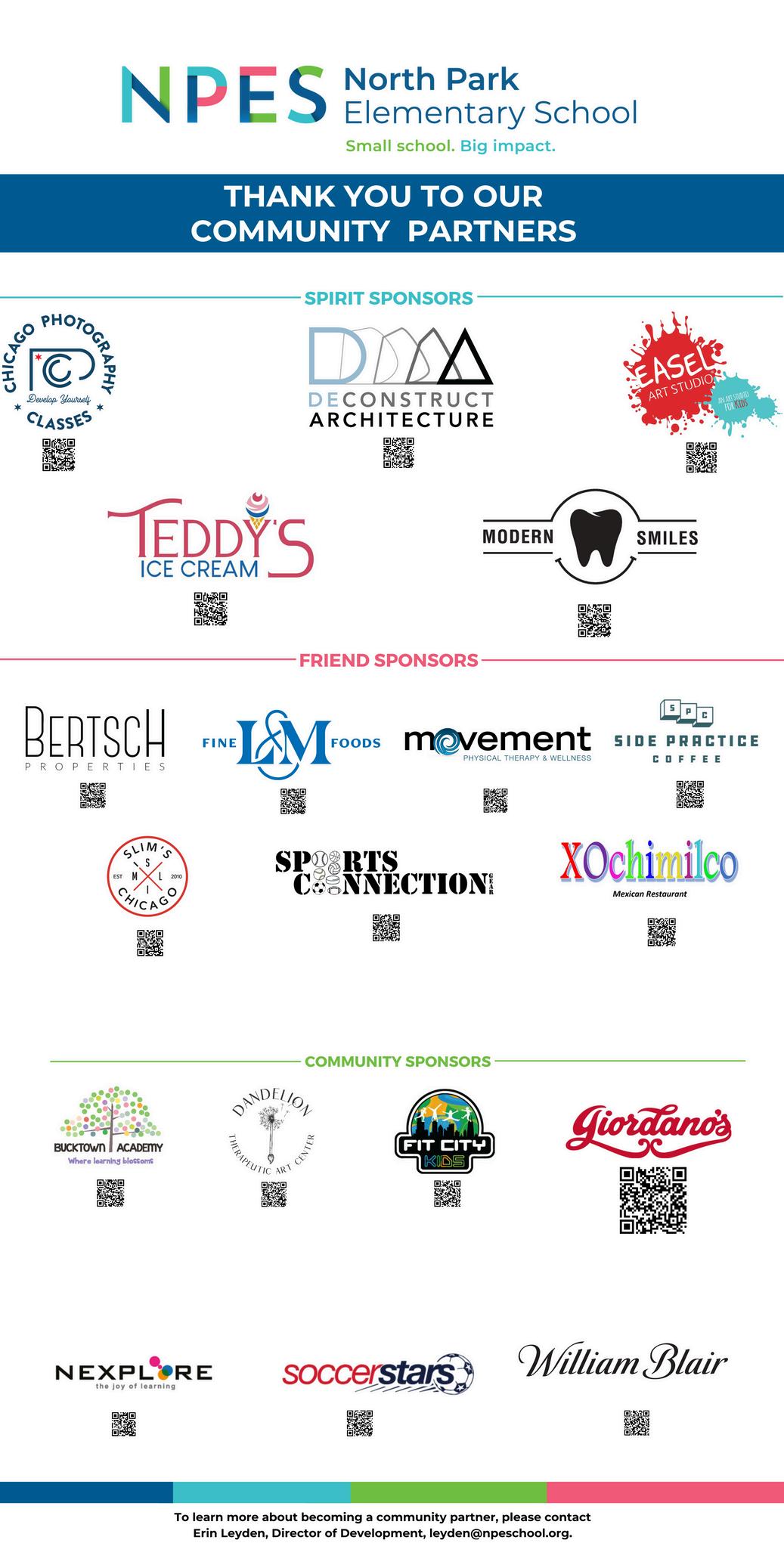
North Park Elementary School is a private, independent school located in the North Center/Ravenswood neighborhood of Chicago. We are accredited by ISACS and a member of NAIS. We joyfully engage students from preschool (age 3) to eighth grade.
TO LEARN MORE VISIT US AT NPESCHOOL.ORG
